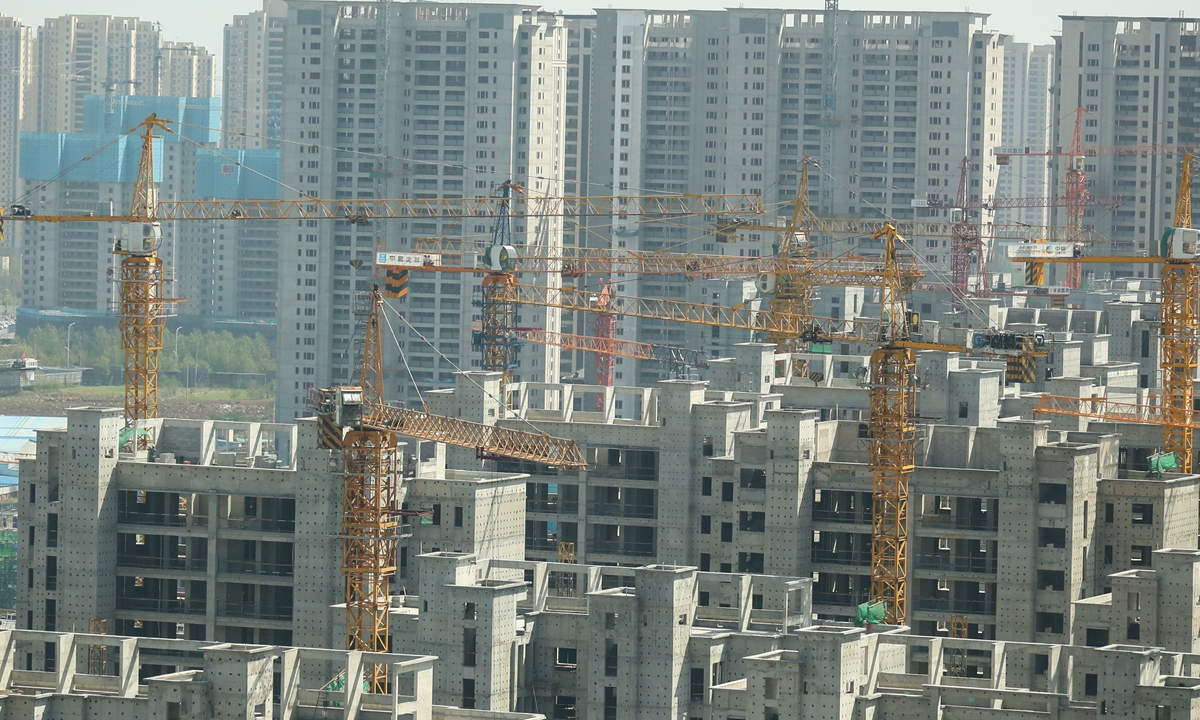China’s new home price growth further slows in Apr, as property market comes under pressure

A housing project under construction in Shenyang, Northeast China’s Liaoning Province. Photo: cnsphoto
The growth of China’s new home prices continued to slow in April, with the price index for new houses across 70 cities recording a year-on-year decline for the first time since December 2015, marking continued downward pressure on the real estate market, officials and experts said on Wednesday.
In April, new home prices in first-tier cities rose 0.2 percent, 0.1 percentage points lower than the previous month, while in second-tier cities, prices fell 0.1 percent on a monthly basis, data published by the National Bureau of Statistics (NBS) on Wednesday showed.
New house prices in first-tier cities recorded a year-on-year increase of 3.9 percent, 0.4 percentage points lower compared with March, and prices in second-tier cities saw a 1.0-percent rise from 2021, down 0.6 percentage points from the previous month.
According to calculated results released by Shanghai-based E-house China R&D Institute, in April, the price index for China’s new home in 70 cities saw a 0.1-percent fall year-on-year for the first time over 77 months, reflecting a deterioration in housing market conditions.
“The figure showed that the real estate market is facing greater downward pressure, and favorable policies need to be accelerated in order to stabilize prices and expectations, as well as stimulating demand,” Yan Yuejin, research director at the institute, told the Global Times on Wednesday.
Sheng Guoqing, chief statistician from the urban department from the NBS, said that in April, among 70 large and medium-sized cities, a total number of 39 cities recorded a price drop year-on-year for new homes, 10 more than in March.
Some experts attributed the new wave of the COVID-19 flare-ups across the country to the slowdown seen in new home price growth with demand remaining suppressed.
The country also saw a sharp drop in home sales in the first four months of 2022. Data from the NBS showed that commercial home sales recorded 3.78 trillion yuan ($559 billion), down 29.5 percent year-on-year, with residential housing sales narrowing 32.2 percent.
Yan noted that there is a process from policy implementation to a real-world impact on the market, warning that if the house price index continues to cool, it will have an impact on the stability of the property market.
Chinese central authorities have rolled out a series of policies to support the property market, including cutting the mortgage rate for first-time home buyers by 20 basis points from the benchmark loan prime rate (LPR).
A number of local governments have also released supportive measures to boost home sales.
From May, more than 10 cities have emphasized the housing needs of multi-child families. Among them, Hangzhou in East China’s Zhejiang Province, said that qualified households with three children can purchase an additional property within local restriction guidelines.
Global Times
